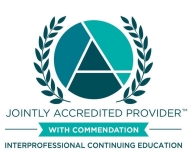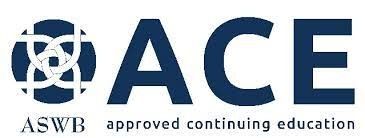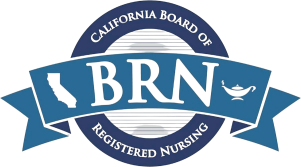Series Description:
The Psychiatric Grand Rounds is an educational series designed to improve psychiatric, psychological, and social work practice, including patient care, education, and public health. Relevant case studies are presented to promote active learning strategies. These presentations are open to all mental health professionals including students.
Target Audience:
Nurse Practitioner (NP)
Nurse, Registered (RN)
Physicians (MD or DO)
Physician Assistant (PA)
Psychologists
Social Workers
Other Healthcare Professionals
Students of Health Professions
Session Objectives:
After Attending this Activity, Learners Should be Able to:
1. Demonstrate how the conscious brain reflects physiology (interception).
2. Describe how chronic stress (threat physiology) drives repetitive unpleasant thoughts (RUTs).
3. Explain how ruminating thoughts cannot be solved without calming threat physiology, and discuss how deep healing occurs by stimulating neuroplasticity.
10/21/2024:
1. Define 3 psychiatric survivor and critical psychiatry redefinitions of psychosis diagnosis and treatment based on emerging research and practice innovation.
2. Identify 3 responses from the alternative paradigm of approaches to psychotic experience based on emerging research and practice innovation.
3. Recognize 3 aspects of the moral and legal case for abolishing forced psychiatry.
11/04/2024:
1. Explain core components of Evidence-Based Psychotherapy (EBP): Identify and explain the principles of EBP, including its reliance on empirical research and symptom reduction.
2. Examine EBP's limitations: Assess potential gaps in EBP using psychoanalytic, philosophical, and humanistic perspectives.
3.Compare therapeutic approaches: Apply and contrast EBP with alternative models in clinical cases, focusing on their different approaches to psychological distress.
11/18/2024:
1. Identify the DSM-5-TR’s currently recognized Personality Disorders.
2. Discuss the Pros and Cons of a “Catagorical” vs. a “Dimensionalized” approach to diagnosis.
3.Describe the ICD-11’s new Dimensionalized system for diagnosing Personality Disorders
12/09/2024:
1. Recognize the distinguishing features of paranoid delusions.
2. Describe the impact of humor and comic interventions on the part of the therapist treating a paranoid patient.
3. Discuss the difference between an interpretive vs. a non-interpretive approach to the psychotherapy of psychotic delusions.
12/16/2024:
1. Describe five core concepts of psychopharmacology for elders.
2. List five signs of cognitive impairment.
3. Identify four factors that can impact the outcomes of depression in Black elders.
01/06/2025:
1. Identify the impact of trauma on mental health.
2. Describe trauma-informed care techniques when working with youth who are experiencing homelessness.
3. Examine resiliency related to youth who are experiencing homelessness.
Providing Culturally Appropriate Care which is Free of Implicit Biases (AB 1195 & 241):
Learners are strongly encouraged to engage in self-directed learning related to the impact of implicit biases in this clinical area via the references provided below:
Implicit bias:
Merino, Y., Adams, L., & Hall, W. J. (2018). Implicit Bias and Mental Health Professionals: Priorities and Directions for Research. Psychiatric Services, 69(6), 723–725. https://doi.org/10.1176/appi.ps.201700294
Social determinants of health:
Alegría M, NeMoyer A, Falgàs Bagué I, Wang Y, Alvarez K. Social Determinants of Mental Health: Where We Are and Where We Need to Go. Curr Psychiatry Rep. 2018 Sep 17;20(11):95. https://pubmed.ncbi.nlm.nih.gov/30221308/
Deferio JJ, Breitinger S, Khullar D, Sheth A, Pathak J. Social determinants of health in mental health care and research: a case for greater inclusion. J Am Med Inform Assoc. 2019 Aug 1;26(8-9):895-899. doi: 10.1093/jamia/ocz049.
https://www.ncbi.nlm.nih.gov/pmc/articles/PMC6696493/
Disclosure of Financial or In-Kind Commercial Support & Conflict of Interest
No one involved in the planning or presentation of this educational activity have any relevant financial relationship(s) to disclose with ineligible companies whose primary business is producing, marketing, selling, re-selling, or distributing healthcare products used by or on patients. No financial or in-kind commercial support was received to produce or promote this educational activity.
– Provider Designee/Verification: Kerri Maya, PhD(c), MSL, RN, NPD-BC
- 1.50 AMA PRA Category 1 Credit™
In support of improving patient care, Sutter Health, is jointly accredited by the Accreditation Council for Continuing Medical Education (ACCME), the Accreditation Council for Pharmacy Education (ACPE), and the American Nurses Credentialing Center (ANCC), to provide continuing education for the healthcare team.
Sutter Health designates this Live activity for a maximum of 1.50 AMA PRA Category 1 Credit™ for physicians. Learners should claim only the credit commensurate with the extent of their participation in the activity.

- 1.50 AMA PRA Category 1 Credit™ Hour(s)
In support of improving patient care, Sutter Health, is jointly accredited by the Accreditation Council for Continuing Medical Education (ACCME), the Accreditation Council for Pharmacy Education (ACPE), and the American Nurses Credentialing Center (ANCC), to provide continuing education for the healthcare team.
Sutter Health certifies this Live activity was designated for a maximum of 1.50 AMA PRA Category 1 Credit™ Hour(s). Non-physicians should claim only the credit commensurate with the extent of their participation in the activity.

- 1.50 ANCC
In support of improving patient care, Sutter Health, is jointly accredited by the Accreditation Council for Continuing Medical Education (ACCME), the Accreditation Council for Pharmacy Education (ACPE), and the American Nurses Credentialing Center (ANCC), to provide continuing education for the healthcare team.
This course/program has been awarded 1.50 ANCC contact hour(s). Sutter Health is accredited provider of nursing continuing professional development. Learners should claim only the credit commensurate with the extent of their participation in the activity.

- 1.50 ASWB-ACE
As a Jointly Accredited Organization, Sutter Health is approved to offer social work continuing education by the Association of Social Work Boards (ASWB) Approved Continuing Education (ACE) program. Organizations, not individual courses, are approved under this program. Regulatory boards are the final authority on courses accepted for continuing education credit. Social workers completing this course receive 1.50 continuing education credits.

- 1.50 CA BRN
This activity is approved for 1.50 contact hour(s) by Sutter Health, which is an approved provider by the California Board of Registered Nursing. (Provider Number 17182). Learners should claim only the credit commensurate with the extent of their participation in the activity.

- 1.50 IPCE
This activity was planned by and for the healthcare team, and learners will receive 1.50 Interprofessional Continuing Education (IPCE) credit for learning and change.


 Facebook
Facebook Twitter
Twitter LinkedIn
LinkedIn Forward
Forward